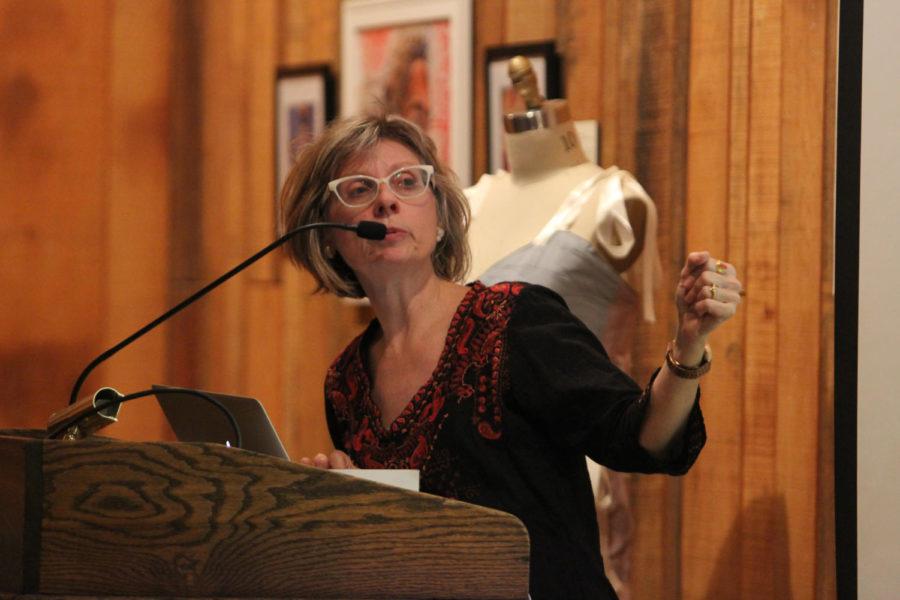Playwright discusses storytelling process
Kira Obolensky, a Mellon Foundation Playwright-in-Residence with Ten Thousand Things, talks about her work with her company and ways to create engaging stories. “I’m thinking about how my story is going to not just engage an audience, but hopefully trance them or move them,” said Obolensky. “The Stories We Tell and Why We Tell Them” lecture was held in the Pioneer Room in the Memorial Union on April 8.
April 9, 2019
Kira Obolensky, a Mellon Foundation playwright-in-residence with “Ten Thousand Things,” spoke about her experience with playwriting and what it takes to interest an audience in her lecture Monday night. Additionally, she shared the techniques she uses when thinking about stories.
Obolensky has co-created and written seven plays for “Ten Thousand Things.”
According to the Lectures Program website, these plays have been performed for community centers in urban areas, shelters, prisons, immigrant and adult education programs, psychiatric wards and in the Twin Cities. Obolensky also attended Juilliard Playwriting Program.
Obolensky said she has learned a lot about storytelling through the audiences she has had. She also lectured about the history of the company and how it came to be.
“It’s a theatre people from all over want to join,” Obolensky said. “It makes everyone who does it not only be a better human, but a better artist.”
Obolensky also discussed a crisis she had as a writer, where she felt like there were too many stories to tell. Obolensky said she felt that as a playwright she wasn’t doing enough and wondered what good her plays did for the world.
She discussed how she focuses on color conscience and gender imaginative casting. Obolensky said she wants her plays to be language-driven and how to create a world with language. Obolensky discussed how humor is important, how the light is needed to balance the dark.
A main concept Obolensky focused on was the first thing you have to do is find out what questions your play raises and not what questions it answers. The question has to be accessed by all sorts of different people, otherwise known as a “stretchy question.”
Imagination, creation of their scenes and music are important to their performances. Obolensky said a story can be about one thing but it can also be about something completely different depending on the context and the audience.
The context of the audience changes what the story is about. Obolensky discussed how she needed to think about what audience was witnessing the story and how they might respond to it.
For many of her plays, Obolensky has used a small cast but have them play multiple roles to tell a big story. One play she wrote had five people who played 105 different characters within the play.
“We are always trying to offer stories that get to the root of challenges everyone is experiencing,” Obolensky said.
Obolensky then had the audience read part of script as well as some of actors act out a couple of her scenes. Previously, Obolensky said she has had plays where the audience could vote on the ending.
“I think its most powerful when it asks audiences to use their imaginations,” Obolensky said.
















